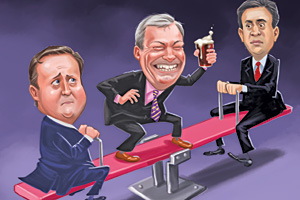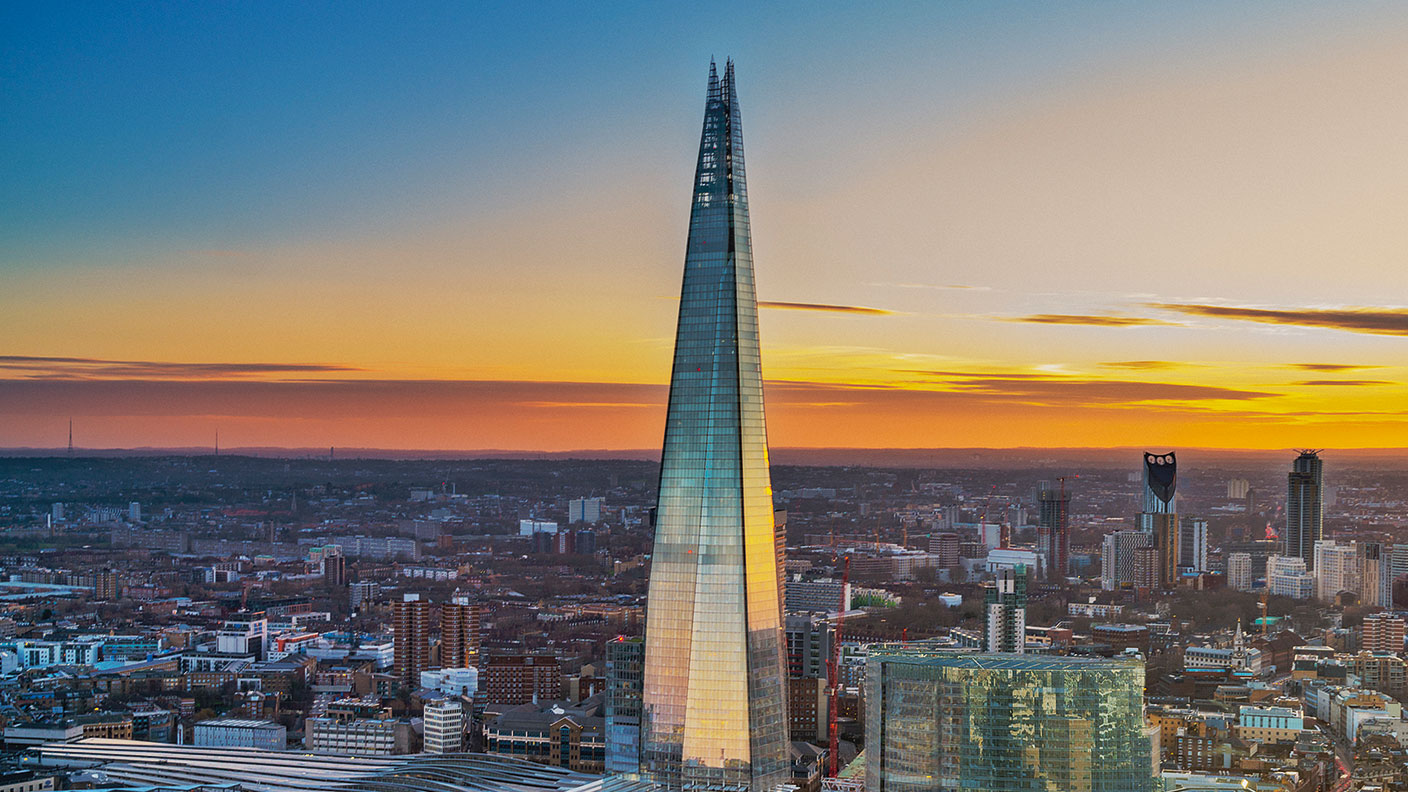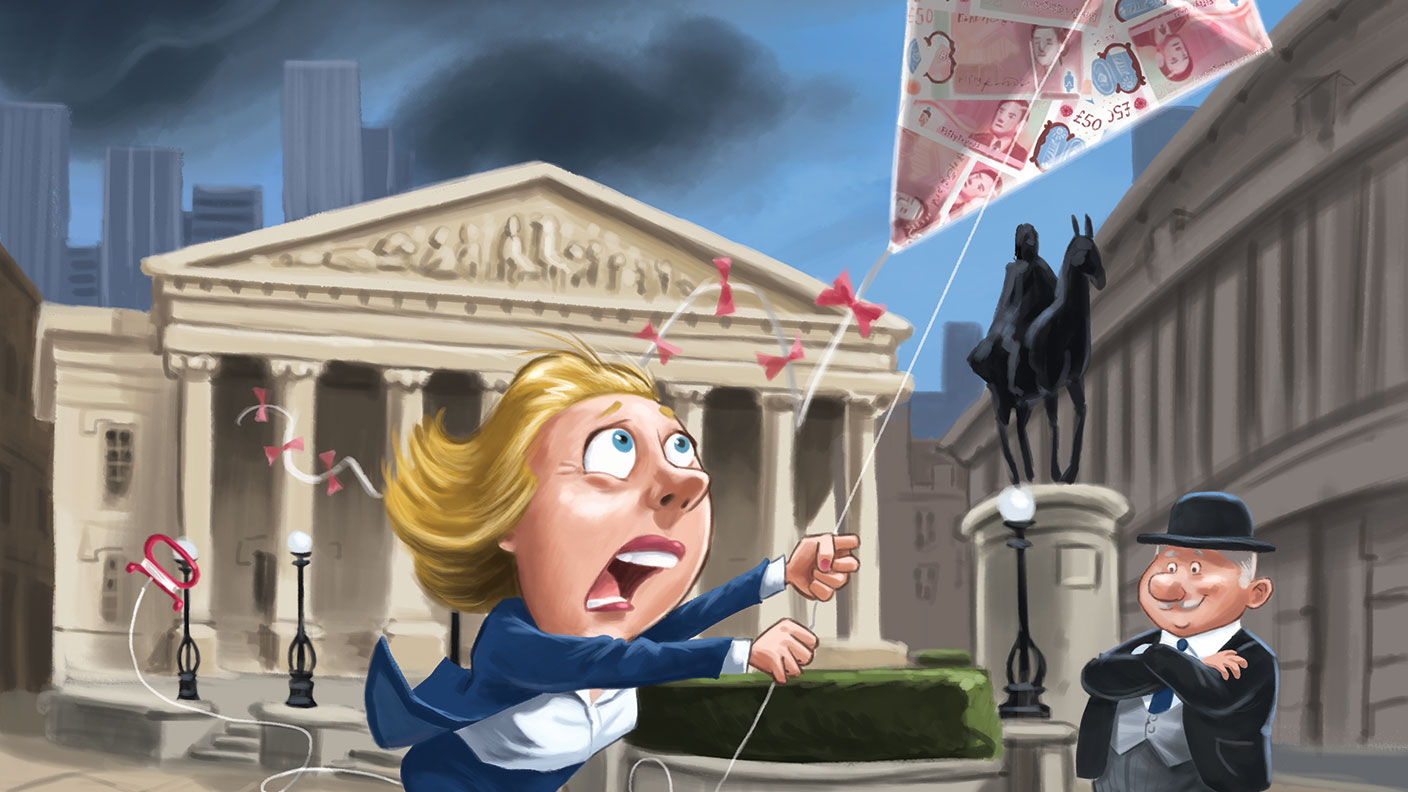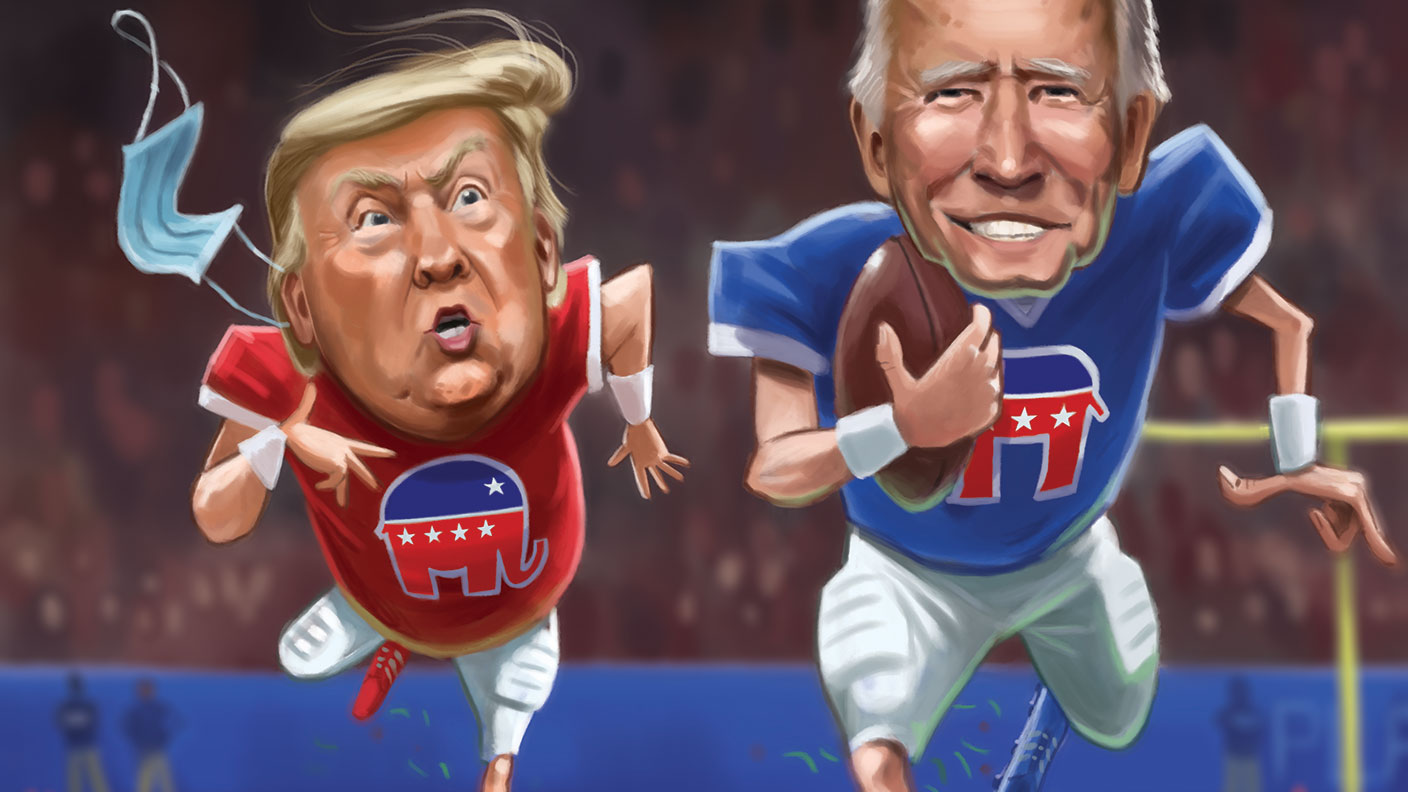Prepare your investments for political upheaval
The general election looks set to usher in a period of instability. Smart investors should prepare for the worst, says John Stepek. He looks at some of the best ways to protect your portfolio.

Get the latest financial news, insights and expert analysis from our award-winning MoneyWeek team, to help you understand what really matters when it comes to your finances.
You are now subscribed
Your newsletter sign-up was successful
Want to add more newsletters?

Twice daily
MoneyWeek
Get the latest financial news, insights and expert analysis from our award-winning MoneyWeek team, to help you understand what really matters when it comes to your finances.

Four times a week
Look After My Bills
Sign up to our free money-saving newsletter, filled with the latest news and expert advice to help you find the best tips and deals for managing your bills. Start saving today!

The general election looks set to usher in a period of instability. Smart investors should prepare for the worst, says John Stepek.
It may not feel like it right now, as you regard our somewhat uninspiring band of political leaders and would-be leaders but when historians look back in 100 years' time, they'll probably see the current period as rather significant for British politics. In 2010, we got our first coalition government since World War II. This year we narrowly avoided the end of the 300-year-old United Kingdom altogether, as Scotland voted to stay part of the union.
Yet all of this could pale compared to the potential upheaval that awaits us under the next government. The general election is held on 7 May. If we have another hung parliament, as George Eaton notes in the New Statesman, it'll be the first time there have been two in a row since 1910. And the chances of that happening look significant. Polls suggest that neither the Conservatives nor Labour have the backing of enough voters to be sure of winning the next election with an outright majority. But nor is it clear how easily any coalition would come together.
MoneyWeek
Subscribe to MoneyWeek today and get your first six magazine issues absolutely FREE

Sign up to Money Morning
Don't miss the latest investment and personal finances news, market analysis, plus money-saving tips with our free twice-daily newsletter
Don't miss the latest investment and personal finances news, market analysis, plus money-saving tips with our free twice-daily newsletter
As Eaton points out, many in both the Conservative and Labour parties would rather rule as minority governments than in partnership with the unpopular Liberal Democrats. The problem with a minority government, of course, is the risk that it will always feel temporary any minority leadership would want to cement its position with a second election, timed to its own political advantage. Yet coalition governments have a similar problem, as they are in constant danger of splintering particularly if they are formed of more than two parties, as might be necessary, depending on the way the votes fall.
We can't say who's going to come out on top in the election. You can see the polling figures and odds given by the most reliable forecasters the bookies on page 30. But what we can say is that, almost regardless of who gets into power next year, Britain faces a potentially very volatile few years. In fact, Anatole Kaletsky goes so far as to suggest on Reuters that it could be "Europe's most politically unpredictable country". Here's why and what that implies for investors.
Fear of a 'Brexit'
For now, the defining issue of the next parliament looks set to be our relationship with Europe and what it means for everything from immigration to trade. The rise of the UK Independence Party is responsible for putting this firmly on the agenda having forced the Conservative party to attempt to snatch back the initiative by promising a referendum on European Union membership in 2017. But it's not simply a Ukip, or even a Tory, concern. The New Statesman's Mehdi Hasan a self-described former europhile and hardly what you'd call a right-wing commentator notes that, given the massive unemployment in the eurozone, and the democratic deficit at the heart of the EU project, "it's pretty difficult to mount a credible defence of the single currency, or for that matter, the EU itself". So while Labour's plan is to avoid a referendum on Europe, there's no guarantee that it would be able to do so Ukip leader Nigel Farage even hinted this month that he'd be willing to prop up Labour in a coalition for the promise of an in/out referendum.
The bluster, propaganda and game-playing that surrounds the European project means it's not easy to get aclear view on what exactly a British exit from the EU would entail. History suggests that it wouldn't be half asbad as the doom-mongering voicestelling us to stay in make out (if you need any proof of that, consider the dire warnings made by the businessmen and politicians who wanted Britain to join the euro over a decade ago none of their prophecies of industrial decline and political irrelevance came true). Indeed, in the longer run a "Brexit" might well be positive, depending on what sort of deals we can strike with both Europe and other trade partners.
However, in the shorter term the point isn't really about whether leaving theEU is good or bad. It's about the uncertainty over what might happen. Firstly, it's a very divisive issue withinUK politics precisely the sort of thing that could cause a fragile coalition to splinter and break down. Secondly, regardless of the eventual outcome, "we're talking about redefining our ties with the partner with whom we do 50% of our trade. If that becomes a reality, the market in the UK will go down," as Saker Nusseibeh of Hermes Investment Management told Reuters. And you can expect the City to be particularly jittery about all this, given the extent to which pan-European regulatory regimes affect their business.
A referendum re-run?
However, while the EU is foremost in everyone's minds, a far more significant political landmine could be Scotland's place in the union. You would think, following the decisive No vote we saw in the Scottish independence referendum in September, that the issue would have been decided for "at least a generation", as former Scottish Nationalist Party (SNP) leader Alex Salmond put it not so long ago. Not a bit of it. The SNP has experienced a massive surge in support, with party membership tripling, while Labour having been forced into an uncomfortable alliance with the Conservatives for the pro-union vote is heading for a wipe out.
Under new first minister Nicola Sturgeon, the SNP is aggressively repositioning itself as the true party of "social justice". At a rally in Glasgow the other day, Sturgeon said: "I humbly and respectfully ask Labour supporters to lend us their vote, because that way and only that way will they win the socially just country that we all seek." As James Forsyth puts it in The Spectator, "if she can keep this momentum going, she will rout Scottish Labour at the next general election". Polls suggest the SNP could potentially take 52 of Scotland's 59 seats at Westminster it currently only has six. That would make it bigger than the Liberal Democrats or Ukip by a significant margin.
Boiling it down, that means two things. Firstly, if there's to be a coalition, the SNP could end up having a great deal of power. Secondly, even if there isn't, such vast gains for the SNP would make it hard to ignore any demands for further constitutional reform. Already, potential Scottish Labour leader Jim Murphy is calling for fully devolved income-tax-setting powers for Scotland, which would be a major step down the road to full-blown independence in practice, if not in name. In short, the UK is far from safe we may be replaying September's referendum drama long before another generation has passed.
Paralysis isn't positive
Some argue that political paralysis isn't necessarily a bad thing it enables people to get on with their lives without constant interference from the government. And there's something to that idea. But paralysis is one thing instability is quite another. Weak and fragile governments don't inspire confidence in external investors and creditors, and the problem is that Britain's balance sheet is still in rather a mess. In 2010, after the last general election, the deficit was an incredible 11% of GDP. That's the kind of annual overspend that would normally have had Britain classed as a basket-case economy, were it not for the fact that most other developed economies had very similar problems (and, of course, the Bank of England's ability to print money to fund said deficit also helped to prevent us from sharing the fate of Greece and other troubled eurozone countries).
The original goal of the government when elected was to close this deficit entirely by 2015/2016. As tends to happen, this goal has slipped badly. Now the chancellor, George Osborne, aspires to close the gap by the end of the next parliament something he'll no doubt provide more details on in his Autumn Statement on the budget next week.
That all means that we still have the biggest budget deficit and the biggest current-account deficit in Europe. In turn, that makes us dependent on attracting foreign capital. That's been easy enough to do in recent years because we've managed to cling on to a reputation as a safe haven. That's at least partly been down to the coalition being able to present a broadly unified front on public-spending issues, and not being too free with the tax giveaways. However, this comforting illusion of stability could all be jeopardised come the next election. Ongoing political upheaval, and uncertainty over both the UK's position in Europe and the integrity of the union itself, is not a recipe for attracting money that's looking for a safe home. So the last thing we need is a series of rolling no-confidence votes resulting in minority governments and coalition members trying to compete for attention with ever more extreme political proposals.
Dealing with the deficit
Then there's the question of how the deficit might actually be tackled. Both of the main parties have been markedly vague about their plans on this front.
As AXA Investment Managers put it, as yet "none of the parties have expressed a medium-term plan for deficit reduction over the next parliament". That's unsurprising, because none of the steps you have to take to wrestle a country's finances back into order are vote-winners.
There are really only two things you can do: you can raise taxes, or you can cut spending (or do both). It's already clear that a Labour or left-leaning coalition would favour tax hikes preferably on "the rich" and on "sinful" sectors, such as tobacco. A Conservative-led government would err on the side of cuts all the while somehow sparing electorally sacrosanct areas, such as the NHS and pensioners.But neither of these plans will suffice.
A £2m "mansion tax" alone will not raise enough revenue to plug the hole in our collective balance sheet. And there aren"t enough "efficiency savings" to be garnered from tinkering with the lower-profile sections of our public sector either.
So whoever takes charge will need to have a plan that involves taking at least some unpopular actions not so easy if your opponents are constantly waiting to spring a "no confidence" vote on you.
What if the doom-mongersare wrong?
Of course, everything might just turn out fine. Back in 2010, most pundits would have bet against the current coalition government surviving its full term in power intact let alone both leaders remaining at the heads of their parties. So merely making it this far is something of an achievement. But while it's nice to hope for the best, it's only sensible to prepare for the worst. We look at some of the best ways to protect your portfolio from political uncertainty below.
The investments to buy now
Whatever the election outcome, expect its immediate aftermath to be more protracted and messy than in 2010 before a new government is formed, say Alastair Newton and Philip Rush of Nomura. And brace yourself for an added complication: that the government formed may not be one capable of surviving the full five years of the parliamentary term. That all means increased instability for British assets.
The most obvious potential casualty is sterling. As fund group AXA puts it, "political uncertainty can often have more of an impact on currencies than other asset classes This could be further exacerbated by a softening in foreign direct investment and renewed concerns about the public finances." Already, the US dollar is surging (as Russell Napier explains here) and sterling is only likely to get weaker against it.
There is little sign of the Bank of England raising interest rates before the election, and if the result is inconclusive, the Bank is likely to err on the side of caution rather than risk derailing any recovery. UK government bonds may not suffer too badly while the Bank and its printing press are there to prop them up, but they hardly look attractive at current levels.
As for shares a weaker pound generally suggests investing in UK-listed companies that earn a substantial proportion of earnings in dollars, as the profits are then higher when converted back into sterling. Classic examples include big blue-chip FTSE 100 stalwarts, such as drugs giant GlaxoSmithKline (LSE: GSK). It also makes sense to have money in overseas stocks our favourites include Japan (accessible via the Baillie Gifford Japan Trust LSE: BGFD). Finally, there's property.
Tighter lending restrictions and higher taxes on foreign owners have already knocked some of the wind out of the sails of the UK property market and of London in particular and the prospect of a potential mansion tax, or higher taxes in general, may also put off the wealthy overseas buyers who have been driving up prices in the capital. Suffice to say, we suspect there will be less money flooding into the UK property market in the year ahead.
The bookies' favourites
If you're interested in politics, you're spoiled for choice when it comes to opinion polls. No fewer than six companies (YouGov, ICM, Populus, Survation, ComRes and Opinium) carry out regular surveys of voter opinion, while Conservative peer Lord Ashcroft is also commissioning ad-hoc polls, both nationally and at a constituency level. At the moment, Labour and the Conservatives are level in the polls, which suggests that Labour will either have a small majority, or be very close to one, come election day.However, polls are not infallible.
As was shown in the recent referendum on Scottish independence (or most notoriously in the 1992 general election, arguably the last time we saw this level of uncertainty), they can give a misleading impression, due to statistical error, mis-sampling, or people not responding truthfully. What's more, they only provide a snapshot of opinion at a certain point in time. And the results in some constituencies may be determined by local factors, rather than national trends alone.
Because of this, some argue that the best signals may instead come from the betting markets, since those taking part are willing to back up their views with hard cash, and so make the effort to ensure they are better informed. Punters on Betfair, an online betting exchange, put the odds of no party having an overall majority at just over 60%. They also think that Labour is likely to end up with the most seats overall, although the two major parties are neck and neck.
Spread-betting firm Sporting Index thinks that Labour will get between286 and 292 seats, while the Conservatives will get between278 and 284 (the Lib Dems are on 28.5-30.5 and Ukip are expected to get between 9.5 and 11.5 seats). However, while studies have shown that the "wisdom of crowds" generally produces more accurate predictions, they can still get it badly wrong. Indeed, in March 2005 you couldfetch odds of 50/1 against that one Barack Obama would become president of the United States.
Get the latest financial news, insights and expert analysis from our award-winning MoneyWeek team, to help you understand what really matters when it comes to your finances.

-
 Can mining stocks deliver golden gains?
Can mining stocks deliver golden gains?With gold and silver prices having outperformed the stock markets last year, mining stocks can be an effective, if volatile, means of gaining exposure
-
 8 ways the ‘sandwich generation’ can protect wealth
8 ways the ‘sandwich generation’ can protect wealthPeople squeezed between caring for ageing parents and adult children or younger grandchildren – known as the ‘sandwich generation’ – are at risk of neglecting their own financial planning. Here’s how to protect yourself and your loved ones’ wealth.
-
 Governments will sink in a world drowning in debt
Governments will sink in a world drowning in debtCover Story Rising interest rates and soaring inflation will leave many governments with unsustainable debts. Get set for a wave of sovereign defaults, says Jonathan Compton.
-
 Why Australia’s luck is set to run out
Why Australia’s luck is set to run outCover Story A low-quality election campaign in Australia has produced a government with no clear strategy. That’s bad news in an increasingly difficult geopolitical environment, says Philip Pilkington
-
 Why new technology is the future of the construction industry
Why new technology is the future of the construction industryCover Story The construction industry faces many challenges. New technologies from augmented reality and digitisation to exoskeletons and robotics can help solve them. Matthew Partridge reports.
-
 UBI which was once unthinkable is being rolled out around the world. What's going on?
UBI which was once unthinkable is being rolled out around the world. What's going on?Cover Story Universal basic income, the idea that everyone should be paid a liveable income by the state, no strings attached, was once for the birds. Now it seems it’s on the brink of being rolled out, says Stuart Watkins.
-
 Inflation is here to stay: it’s time to protect your portfolio
Inflation is here to stay: it’s time to protect your portfolioCover Story Unlike in 2008, widespread money printing and government spending are pushing up prices. Central banks can’t raise interest rates because the world can’t afford it, says John Stepek. Here’s what happens next
-
 Will Biden’s stimulus package fuel global inflation – and how can you protect your wealth?
Will Biden’s stimulus package fuel global inflation – and how can you protect your wealth?Cover Story Joe Biden’s latest stimulus package threatens to fuel inflation around the globe. What should investors do?
-
 What the race for the White House means for your money
What the race for the White House means for your moneyCover Story American voters are about to decide whether Donald Trump or Joe Biden will take the oath of office on 20 January. Matthew Partridge explains how various election scenarios could affect your portfolio.
-
 What’s worse: monopoly power or government intervention?
What’s worse: monopoly power or government intervention?Cover Story Politicians of all stripes increasingly agree with Karl Marx on one point – that monopolies are an inevitable consequence of free-market capitalism, and must be broken up. Are they right? Stuart Watkins isn’t so sure.